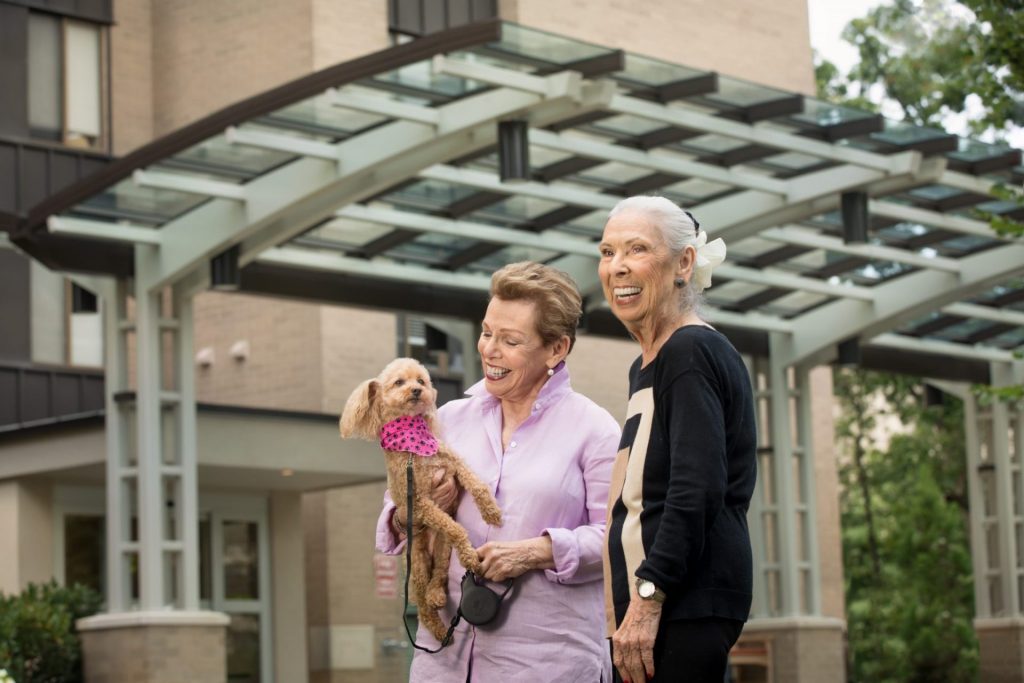Independent Living Experience a Vibrant Lifestyle
Independent living is about embracing the freedom to make your own choices, at your own pace. It allows individuals to retain their independence while enjoying a vibrant, active lifestyle. This living arrangement fosters a supportive environment, enabling older adults to thrive while promoting healthy aging. For many, transitioning to independent living is a significant step toward greater peace of mind. It offers an enhanced quality of life and opens the door to meaningful connections with others.
Embrace Independence
Choosing independent living is about valuing your autonomy and prioritizing your personal well-being. Here are a few important aspects of this lifestyle:
- Freedom of Choice: Every day is yours to design, whether it’s engaging in activities you love or simply relaxing on your own terms.
- Aging Gracefully: This lifestyle encourages you to age with dignity, while still keeping full control over your decisions and lifestyle.
- Self-Sufficient Living: While promoting your independence, this option offers support when needed, giving you confidence and reassurance.
Making the move to independent living can lead to better overall health, helping residents enjoy their later years with peace of mind.
Enrich Your Well-being
Independent living can significantly contribute to a healthier, happier life. Here are ways to nurture your well-being:
- Socialization Opportunities: Meet new friends and share in community events, helping to combat loneliness and foster connections.
- Wellness Programs: Take part in fitness classes, nutritional workshops, and fun activities designed to keep you physically and mentally fit.
- Medical Services: Many independent living communities offer on-site medical services in addition to wellness programs.
- Companionship Services: If you ever feel the need for a little extra support, companionship services can provide emotional comfort and friendly engagement.
Being active in a close-knit community can uplift your spirit and help you form bonds that make your life fuller and more joyful.
Aging in Place with Dignity
Many people prefer to stay in their own homes as they age, however, a move to an independent living community allows people to preserve their independence and dignity while having access to care and services should they need them. Here are some thoughtful strategies for aging in place in an independent living community:
- Home Modifications: Simple updates like installing grab bars or non-slip flooring can make your home safer and easier to navigate.
- Safety Assessments: Regular checks of your living space ensure a secure environment, giving you and your loved ones peace of mind.
Choosing to age in place allows you to maintain your independence while also having access to the right level of support to lead a fulfilling life.
Are you ready to explore the possibilities of independent living? Reach out to Charles E. Smith Life Communities and let us help you embrace a vibrant, independent lifestyle.
Independent Living
Residences
Ring House and Revitz House offer distinct options for independent living on campus, each with their own unique personality and possibilities.
Watch VideoFAQ's
What is independent living?
Independent living is a lifestyle that allows seniors to maintain their autonomy while having access to community support and services as needed.
Howdoes independent living improve quality of life?
It enhances quality of life by fostering social connections, promoting independence, and offering wellness programs tailored to seniors
Can I modify my home for independent living?
Absolutely. Many residents make home modifications to improve safety and accessibility, allowing them to maintain their independence.
Independent Living Options: Finding Your Perfect Fit
Choosing the right living arrangement is crucial for seniors who wish to maintain their independence. Independent living options allow you to enjoy life to the fullest, with support available whenever you need it. This guide will help you explore the various choices in independent living communities, so you can find the best fit for your lifestyle.
The Allure of Independent Living Communities
Independent living communities are perfect for those who value their independence but appreciate the comfort of a supportive environment. These communities offer:
- Socialization: Join in on fun activities and events, meet new people, and build lasting friendships.
- Wellness Programs: Participate in health-focused initiatives, from fitness classes to mental health support.
- Accessibility: These communities are designed with ease of movement in mind, offering features that meet mobility needs.
- Dining: Independent living communities aim to make dining convenient, often offering meal plans with some meals included or other dining venues available for an extra fee. If you have dietary needs like vegan, gluten-free, or Kosher, always be sure to ask if these are accommodated.
- Maintenance: Many communities prioritize a worry-free lifestyle by providing maintenance for common areas, exteriors, and even inside apartments, including appliances and plumbing – letting you focus on what you enjoy most.
- Transportation: Many independent living communities offer transportation to shopping and social outings, helping you stay active and connected without the need to drive.
- Area Attractions: The surrounding community matters—consider nearby shopping, dining, places of worship, and public transportation to ensure a location that supports your lifestyle.
Living in a senior living community can open up a world of opportunities for seniors to stay active, engaged, and fulfilled.
Independent Living Apartments
Independent living apartments provide a safe, comfortable space tailored to the needs of older adults. When considering these apartments, take into account:
- Accessibility: Ensure the apartments are easily accessible and offer elevators to accommodate any mobility needs.
- Safety Measures: Look for emergency call systems and well-lit areas to enhance security. Many communities offer 24-hour security and/or concierge services.
- Cost and Affordability: Compare various housing options to find a home that suits your budget without sacrificing essential amenities.
- Home Modifications: Many communities allow personal modifications to make your space feel even more like home.
These apartments allow you to live independently while ensuring your comfort and safety are prioritized.
Assisted Living vs. Independent Living
Understanding the difference between assisted and independent living can help you make an informed decision. Here’s a comparison:
| Feature | Independent Living | Assisted Living |
| Care Level | Minimal assistance, promoting self-sufficiency | Personalized help with daily tasks |
| Housing Type | Apartments or cottages | Rooms or apartments with support services |
| Social Activities | Community programs | Structured activities with supervision |
| Healthcare Access | Limited, with a focus on independence | More extensive healthcare support |
Transitioning from independent living to assisted living is a natural progression. Both options aim to enhance the quality of life for older adults.
By considering these factors and exploring your options, you can confidently take the next step in finding the ideal independent living arrangement. For personalized advice, reach out to experts who can provide tailored guidance and resources.
Making the Transition to Independent Living
Preparing for the Move
Transitioning to an independent living community is a wonderful opportunity to gain more independence. Here are some tips to help you prepare:
- Decluttering: Go through your belongings and decide what to keep, donate, or discard. Downsizing can bring a sense of renewal as you begin your new chapter.
- Transportation: Plan how you’ll move your things. Choose a trusted moving service that specializes in coordinating moves for older adults to make the process smoother and less stressful.
- Community Support: Familiarize yourself with the independent living community you’ll be joining. Learn about the services, activities, and resources available to help you feel more at home and ease the transition.
Taking these steps can make your move more manageable, allowing you to focus on the exciting possibilities ahead.
Financial Considerations
Managing finances is an important aspect of independent living. Here are a few things to keep in mind:
- Insurance: Review your current insurance policies to ensure they fit your needs in an independent setting. This can include health insurance, liability coverage, or renters’ insurance.
- Payment Options: Independent living communities offer various payment methods, from monthly rent to one-time fees. Some services may also be covered by Medicare or Medicaid.
- Financial Planning for Seniors: Create a comprehensive budget that covers all your costs, including rent, utilities, groceries, and personal care. Consider using financial planning tools or consulting a specialist to ease this process.
By managing your finances carefully, you can enjoy a stable and stress-free lifestyle.
Emotional and Social Adjustment
Transitioning to independent living isn’t just about the physical move– it’s also an emotional
journey. Here’s how to ease the adjustment:
- Coping with Change: It’s normal to feel a bit anxious or unsettled after moving to a new home. Consider practicing mindfulness, journaling, or seeking support to process your feelings.
- Building a New Social Circle: Get involved in community activities, clubs, or classes to meet new friends and form connections.
- Companionship Services: If you feel isolated, consider companionship services, which provide regular social interaction and support.
Acknowledging your emotions and taking proactive steps to connect with others can help you embrace this new chapter with optimism and confidence.



